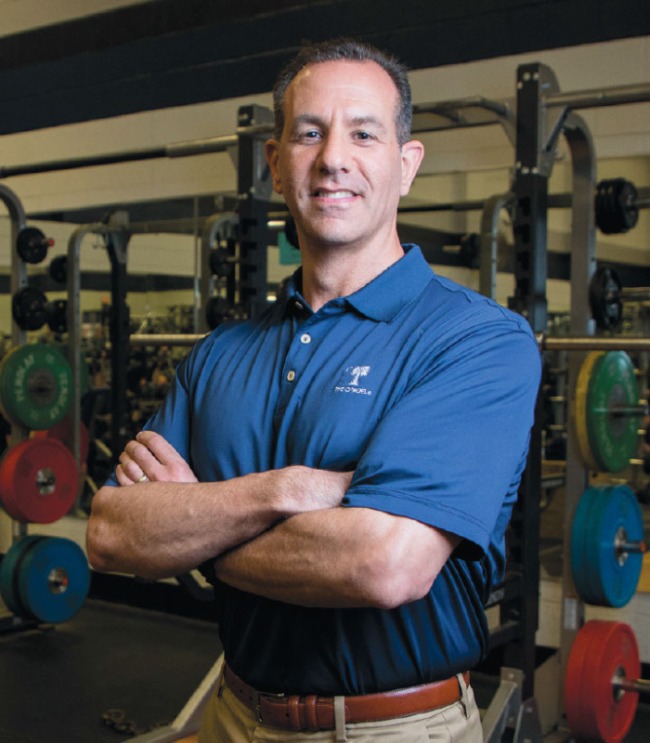Pulteney Street Survey
DANIEL BORNSTEIN '95: Building Resilience

BY KEN DEBOLT AND BETHANY SNYDER
Daniel Bornstein '95 learned the importance of resilience at a young age: When he was 11, a fall resulted in a life-changing back injury. But it was that very accident that put him on a path to a leadership role at the Citadel and with the National Physical Activity Plan.
Broken ribs, fractured vertebrae and herniated discs not only shifted Bornstein's life from one of activity and athletics to immobilization and recovery, it introduced him to what would be two fundamental components of his life: public service and physical fitness.
The firefighters who came to rescue Bornstein when he fell on the stairs left an indelible imprint. At 18, he began volunteering with his hometown department in Bedford, N.Y. "It gave me my first taste of community service and public service," he says. When he came to HWS, he volunteered at Geneva's Nester Hose Co. #1.
Bornstein's fitness returned through a steadfast dedication to physical therapy, piquing his interest in sports medicine and leading to a job in the clinic where he'd spent years in rehab. As a high school senior, he reached out to the late HWS Coordinator of Sports Medicine Doug Reeland P'09, P'13, who hired him as a student trainer for the Hobart football team. Bornstein describes his time working with the Statesmen and being mentored by Reeland as "probably four of my most favorite years of my life."
After graduation, the psychology major moved to Tucson, Ariz., and founded two fitness companies. It was fulfilling work, but that sense of service, of making an impact on a broader scale, was missing. Bornstein entered a Ph.D. program in exercise science at the University of South Carolina, where he "learned about the importance of physical activity in improving population health and of environment and policy in shaping individual-level behavior," he explains.
The idea of improving health and fitness on a broad level led Bornstein to think about the impact of physical inactivity and low fitness on military readiness and national security. "When I had the chance to do research in that area at a military college, I jumped at the opportunity," he says.
Bornstein has been at the Citadel, the military college of South Carolina, for more than eight years. An associate professor in the department of health and human performance, he is also director of the Center for Performance, Readiness, Resiliency, and Recovery, which offers programming for those who work with tactical athletes (military service members, firefighters, law enforcement, emergency medical service workers and veterans).
"Just like you need to prepare a sport athlete for the demands of their sport, we need to prepare tactical athletes for the physiological, behavioral and cognitive aspects of their job," says Bornstein. "We're protecting and serving those who protect and serve."
Bornstein also serves as chair of the expert panel developing a military sector for the National Physical Activity Plan (NPAP). An effort to increase population levels of physical activity to prevent chronic conditions like heart disease, diabetes and certain cancers and infectious diseases, the NPAP is organized around societal sectors including education, health care, transportation, urban planning, sports and the military.
Bornstein's work with the NPAP allows him to be of service, which he describes as one of the most important life lessons. "Service was part of the HWS experience and part of my firefighting experience," he explains. "Giving back is one of my guiding principles."
The man whose life has been well served by mentors is now a mentor to many. "Educating students who make a difference — helping them to be ready and resilient for their challenging jobs — is by far the most rewarding aspect of my job," he says.
Key to serving and protecting those who serve and protect is instilling in his students the message of resiliency that Bornstein learned at a young age. "Resiliency is the ability to get up after you've been knocked down," he says. "It's inevitable that we're going to be knocked down. The question is, how do we respond to that?"
